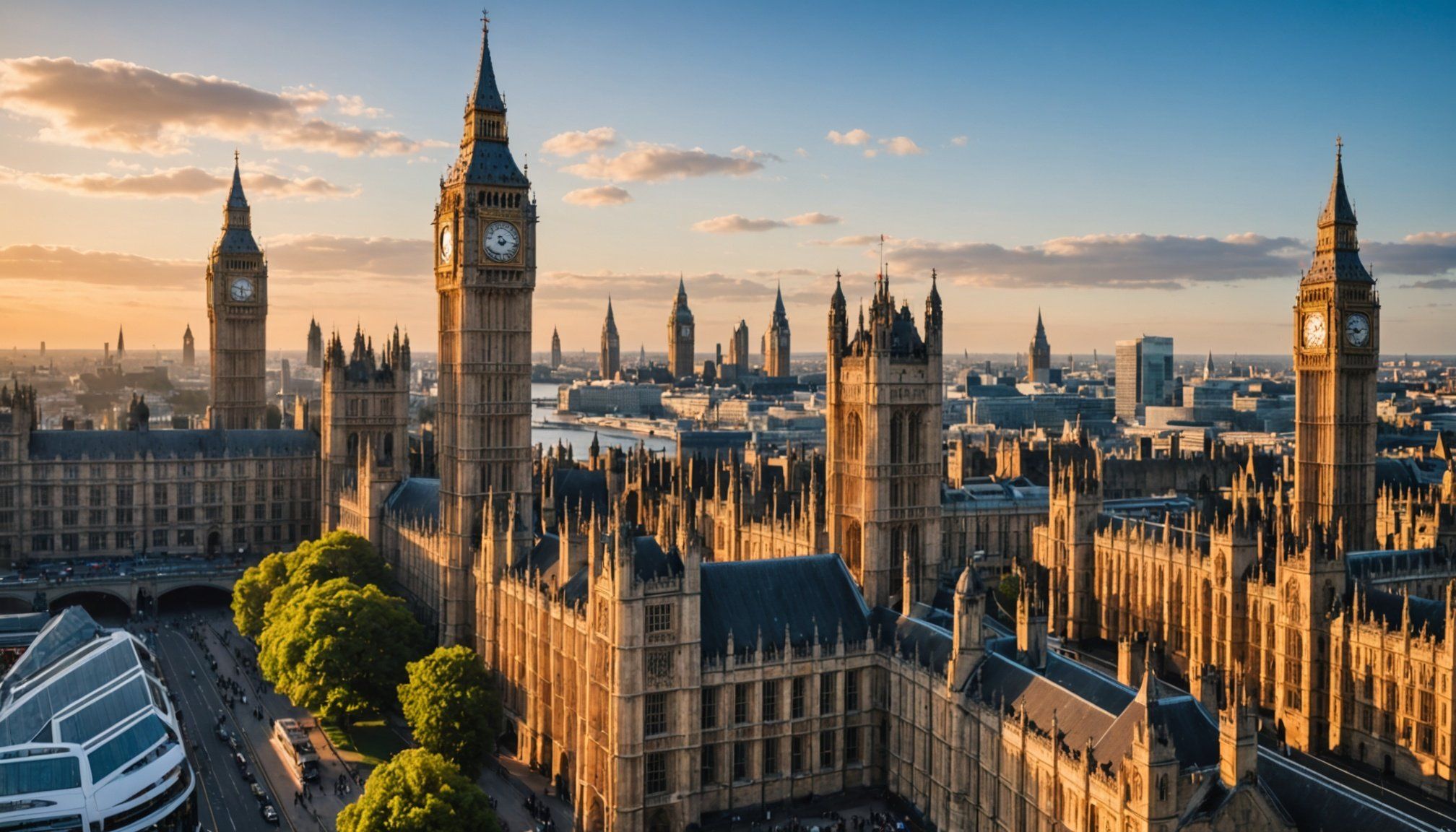Overview of Post-Pandemic Tourism Strategies
The post-pandemic era has posed significant challenges for UK tourism boards, necessitating a focus on renewal strategies. With global tourists gradually returning, innovation within the sector has become pivotal. Stakeholders recognise the necessity for creative solutions to attract visitors back to vibrant destinations.
A crucial element driving the revival is the collaboration among various entities within the tourism industry. This includes UK tourism boards coordinating with local businesses to ensure cohesive efforts. By fostering partnerships, they are able to develop tailored experiences that meet the shifted expectations of tourists in a post-pandemic world.
Also read : Unlocking Growth and Performance: The Ultimate UK SME Guide to Cloud Computing Success
Furthermore, tourism boards are actively engaging in initiatives that highlight post-pandemic tourism practices. They use these strategies to reassure both domestic and international travellers of the safety and appeal of UK destinations. As a result, tourism boards are revitalising the industry by leveraging innovation and collaboration.
Looking into the future, maintaining these alliances and innovative practices will be essential for sustaining growth in the tourism industry. Successfully implementing such strategies can not only rebuild confidence among global tourists but also reinforce the UK’s position as a leading travel destination.
Additional reading : Transforming UK Agriculture: Unlocking IoT Innovations for Enhanced Crop Surveillance and Agricultural Advancement
Case Studies of Successful UK Tourism Campaigns
The exploration of successful tourism campaigns in the UK highlights several key strategies that have effectively captured the attention of travellers. These campaigns illuminate how the UK has adapted to evolving traveller preferences post-pandemic.
Campaign 1: Adapting to New Traveler Preferences
Focusing on the shift in traveller preferences, this campaign aimed to cater to a more cautious and curiosity-driven audience. The campaign integrated innovative and creative elements like interactive maps and immersive experiences, making UK destinations more appealing. Through strategic targeting and bespoke offerings, the campaign emphasized safety while presenting engaging travel experiences. This approach successfully reinvigorated interest and increased tourist visits, demonstrating the adaptability of UK tourism.
Campaign 2: Enhancing Digital Presence
In response to the growing emphasis on digital interaction, the second campaign pivoted to digital marketing strategies. By leveraging social media and influencer partnerships, the campaign reached a wider audience, particularly through visually captivating content. Engagement metrics indicated significant online interactions, underscoring the effectiveness of enhanced digital presence to appeal to global tourists.
Campaign 3: Sustainability Initiatives
Acknowledging the rising importance of sustainability, the third campaign promoted eco-friendly practices within the tourism industry. In collaboration with local businesses and communities, the campaign highlighted green travel options, leading to positive consumer response and fostering a more sustainable tourism model.
Innovative Partnerships and Collaborations
In the realm of tourism partnerships, innovative collaborations have proven indispensable for the UK tourism industry’s recovery. Local businesses and tourism boards have formed strategic alliances to enhance visitor experiences. These partnerships range from joint efforts with hotels to work with restaurants and cultural venues.
Collaborative efforts focus on creating seamless, memorable experiences. By intertwining services and promotions, global tourists can enjoy a cohesive travel journey. For instance, a partnership between a renowned hotel and a local eatery may offer exclusive dining packages. Such creativity in partnerships boosts not only the appeal to tourists but fosters economic support for local businesses.
These collaborations extend to regional and national marketing efforts, amplifying the overall impact. National campaigns often highlight regional treasures, while local campaigns showcase hidden gems. This synergy ensures no opportunity is wasted in attracting potential visitors.
Global outreach is enhanced through these collaborative endeavors, positioning the UK as an attractive destination. By working together, stakeholders can leverage each other’s strengths. The result is more inclusive, diverse tourism offerings, appealing to various traveler demographics. In summary, these innovative partnerships are reshaping the landscape of UK tourism, supporting a robust post-pandemic recovery.
Digital Marketing Efforts and Strategies
In the current tourism landscape, digital marketing has emerged as a critical tool for engaging visitors worldwide. As part of these efforts, the development of virtual tours is gaining momentum.
Implementation of Virtual Tours
Virtual tours provide an innovative way to showcase destinations online. These virtual experiences offer an immersive preview, attracting international visitors who may hesitate to travel physically. The use of cutting-edge technology enables prospective tourists to explore UK landmarks safely from their homes. Participating entities have noted positive feedback, highlighting increased interest and engagement.
Utilizing Data Analytics for Targeted Marketing
Data analytics plays an essential role in understanding consumer behaviour. By analyzing shifts in preferences, tourism boards can tailor marketing strategies effectively. Success stories of data-driven campaigns illustrate how insights lead to improved visitor engagement, with marketing plans adaptable to emerging trends and demands.
Leveraging User-Generated Content
User-generated content adds authenticity to marketing. Encouraging tourists to share their experiences online enriches promotional strategies, with case studies revealing increased engagement and trust. Authentic testimonials and posts help potential travelers envision their visits, stand as vital tools in tourism recovery, and exemplify effective utilization in marketing initiatives.
Safety Measures and Consumer Confidence
In a world reshaped by uncertainties, enforcing health and safety protocols in tourism is paramount to rebuilding visitor confidence. UK tourism boards have made significant strides in implementing rigorous health protocols, ensuring environments are safe for both the workforce and tourists. This includes measures like enhanced sanitation practices, social distancing mandates, and contactless payment systems.
Communication strategies play a vital role in informing and reassuring travelers. Through transparent and consistent updates, tourism boards help manage expectations and reduce anxiety about travel plans. This openness fosters trust, encouraging more tourists to explore UK destinations.
Consumer perceptions greatly impact their travel decisions. The perception of safety remains a critical factor in post-pandemic tourism. When travelers feel assured of robust health measures, they are more inclined to visit. This emphasis on safety not only fortifies consumer confidence but also supports a gradual yet robust recovery of the tourism sector. By prioritising health and safety, tourism entities can effectively mitigate apprehensions and lure global tourists back, contributing positively to the industry’s sustainability and growth.
Ultimately, by prioritising safety, tourism boards can reassure tourists and set the stage for a thriving post-pandemic recovery.
Insights into Consumer Behavior Shifts
In the evolving landscape of post-pandemic insights, understanding shifts in consumer behavior is crucial for tourism stakeholders. Awareness of these changes enables tourism boards to effectively adapt to emerging trends in travel preferences and enhance their strategies.
Trends in Travel Preferences
Since the pandemic, significant changes in travel trends have emerged. Travellers now prioritise safety, seeking destinations that assure health protocols. Furthermore, the appeal of open spaces has grown, leading to increased interest in rural and nature-based vacations. This shift demands marketers emphasize these aspects, highlighting the serene and secure experiences tourists can enjoy.
The Rise of Domestic Tourism
A notable trend is the rise in domestic tourism, driven by restrictions on international travel and a renewed appreciation for local attractions. Factors such as convenience, lower costs, and the desire to support local economies contribute to this surge. The industry’s challenge lies in creating innovative campaigns that showcase local gems, enticing residents to explore their own backyards.
Importance of Personalization in Marketing
With the altering landscape, personalization has become paramount. Tailored experiences and targeted communications resonate more profoundly with travellers. Success stories in this domain illustrate marked improvements in engagement and visitor loyalty. The future of tourism lies in leveraging these personalised strategies to enhance visitor experiences and satisfaction.











